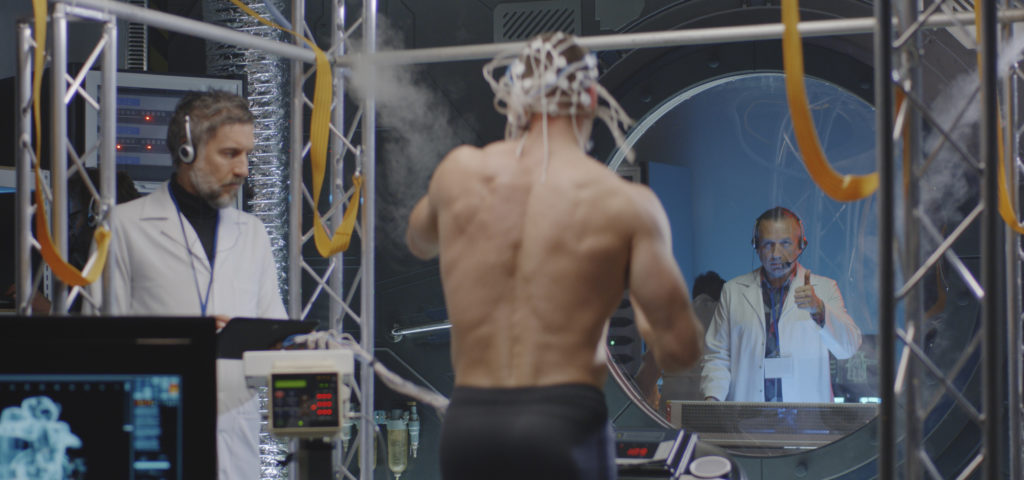Quick Hits
Daily brief research updates from the cognitive sciences

Those of you who have followed my writing will know that I have reported regularly on the amazing benefits of exercise and walking on the brain, body, and cognition.
However, though we know that walking can stimulate various cognitive functions, we also know that doing multiple complex or demanding tasks together reduces performance. So, walking helps stimulate creativity and improves cognitive performance – normally after walking, while walking, performance on cognitive tasks decreases. Which is often why when you really need to think something through you automatically stop or pause.
This is all in line with what we know of cognitive and brain functioning. However, some researchers from the University of Rochester Medical Centre have just published a paper with some surprising results.
What did they find?
26 healthy 18-30-year-olds did a series of tasks. First they did a response task to images of pictures while sitting. This was considered their “baseline” performance level. They then conducted the same task while walking on a treadmill. Almost all previous research showed that performance decreases. This was the case in 12 participants, however, in 14 participants performance increased!
All participants had EEG recordings of their brain activity – and they found that in these 14 prefrontal activity (associated with cognitive performance) in the brain increased during walking tasks leading to higher performance. However, before you get too excited there was no way to predict this from any other data or even observing them.
This suggests that in some people in this study more than 50% of people improve performance on cognitive tasks while walking. Which if we learn to predict this could lead to more effective strategies for cognitive performance for these people.
It could also be that these people also intuitively do tasks that boost their performance. But beware – the research on multitasking is still clear: the more tasks you do concurrently, the lower the performance, the more mistakes you make, and the slower you are. It also compares a highly automated task, walking with a cognitive task, not two cognitive tasks. So, no free card on multi-tasking here.
Single tasking, is still the best advice I can give to boost performance●

Andy Habermacher
Andy is author of leading brains Review, Neuroleadership, and multiple other books. He has been intensively involved in writing and research into neuroleadership and is considered one of Europe’s leading experts. He is also a well-known public speaker speaking on the brain and human behaviour.
Andy is also a masters athlete (middle distance running) and competes regularly at international competitions (and holds a few national records in his age category).
Reference
Eleni Patelaki, John J Foxe, Kevin A Mazurek, Edward G Freedman.
Young adults who improve performance during dual-task walking show more flexible reallocation of cognitive resources: a mobile brain-body imaging (MoBI) study.
Cerebral Cortex, 2022
DOI: 10.1093/cercor/bhac227
More Quick Hits
Experts Don’t Give the Best Advice – Just More of It
Quick HitsDaily brief research updates from the cognitive sciences k, that is a massive generalisation, and the research didn’t actually look at experts in the sense that we understand it. It is nevertheless insightful and does indeed match some of...
Groovy Music Improves Brain Performance
Quick HitsDaily brief research updates from the cognitive sciences et into the groove… or so sang Madonna with her hit single in 1985. Little did she know at the time but getting into the groove certainly does seem to be beneficial for you - not to...
Even Moderate Alcohol Consumption Linked to Brain Decline
Quick HitsDaily brief research updates from the cognitive sciences he tide seems to have turned on alcohol. Though we have always known that excessive alcohol consumption is negative there were for a long time inconsistencies with the research into...
Flu Vaccination Dramatically Lowers Risk Of Alzheimer’s
Quick HitsDaily brief research updates from the cognitive sciences am always interested in headlines that are related to brain health. And though Alzheimer’s is a long way off for (hopefully) me, this still struck me as interesting. For me this...
How Mindfulness Meditation Reduces Pain
Quick HitsDaily brief research updates from the cognitive sciences indfulness meditation has been shown to be beneficial for many things such as lowering stress, increasing wellbeing but also making better decisions and being less biased. Not bad....
You Smell Like Your Friends
Quick HitsDaily brief research updates from the cognitive sciences e all know that dogs like to sniff each other - often in "delicate" parts of their body. We also know that many other animals have very good sense of smells. But in our daily lives,...






